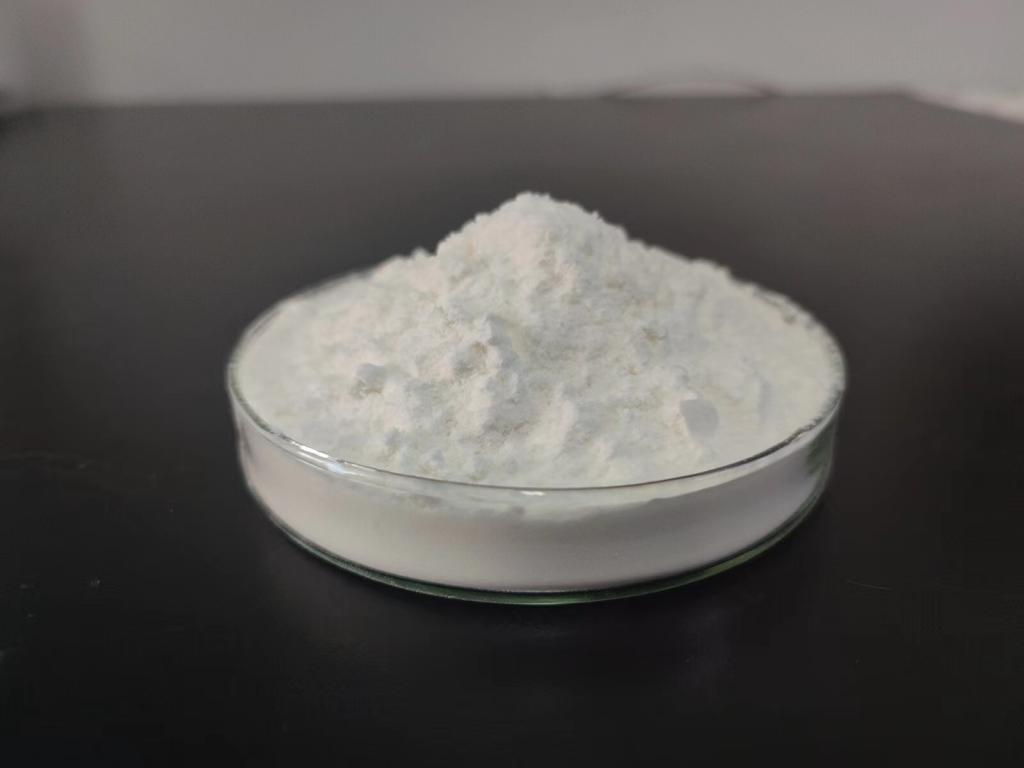Tel:+8618231198596

News
 CONTACT
CONTACT
 CONTACT
CONTACT
- Linkman:Linda Yao
- Tel: +8618231198596
- Email:linda.yao@dcpharma.cn
- Linkman:CHARLES.WANG
- Department:Overseas
- Tel: 0086 0311-85537378 0086 0311-85539701
News
Current Position:
Home >
News
>ε-Polylysine Hydrochloride: A Potential Adjuvant for Vaccine Development.
ε-Polylysine Hydrochloride: A Potential Adjuvant for Vaccine Development.
TIME:2024-06-21
Mechanisms of Action as an Adjuvant
ε-Polylysine hydrochloride exerts adjuvant effects through several mechanisms:
Enhanced Antigen Presentation: It promotes antigen uptake by antigen-presenting cells (APCs) such as dendritic cells, facilitating efficient presentation to T cells and enhancing immune recognition.
Activation of Innate Immunity: ε-Polylysine hydrochloride activates innate immune responses via Toll-like receptor (TLR) signaling pathways, leading to cytokine production and inflammation at the injection site.
Modulation of Immune Signaling: It modulates immune cell activation and differentiation, promoting a robust adaptive immune response characterized by increased antibody production and cytotoxic T cell activity.
Applications in Vaccine Development
1. Subunit and Recombinant Vaccines:
ε-Polylysine hydrochloride is utilized in subunit and recombinant vaccine formulations to enhance immunogenicity. It improves the stability and bioavailability of antigens, thereby promoting sustained immune responses against specific pathogens.
2. Inactivated and Live-Attenuated Vaccines:
As an adjuvant, ε-Polylysine hydrochloride enhances the immunogenicity of inactivated and live-attenuated vaccines by stimulating both humoral and cellular immune responses. It aids in achieving protective immunity against infectious diseases.
3. DNA and RNA Vaccines:
ε-Polylysine hydrochloride is investigated in nucleic acid-based vaccines (DNA and RNA vaccines) to augment antigen expression and uptake, improving the efficacy of genetic immunization strategies.
4. Therapeutic Vaccines:
In therapeutic vaccines targeting chronic infections or cancer, ε-Polylysine hydrochloride enhances the immune system's ability to recognize and eliminate diseased cells, supporting the development of personalized immunotherapies.
Research Findings and Experimental Evidence
Research on ε-Polylysine hydrochloride as a vaccine adjuvant has yielded promising results:
Immunogenicity Studies: Preclinical studies have demonstrated that ε-Polylysine hydrochloride enhances antigen-specific immune responses, including antibody titers and T cell activation, in animal models.
Antigen Delivery: ε-Polylysine hydrochloride improves the delivery and presentation of antigens to immune cells, leading to enhanced efficacy of vaccine formulations against infectious diseases and cancers.
Safety Profile: Initial safety assessments indicate that ε-Polylysine hydrochloride is well-tolerated at adjuvant concentrations used in vaccine development, with minimal adverse effects observed in experimental settings.
Practical Considerations and Implementation
1. Adjuvant Formulation:
Optimizing the formulation of ε-Polylysine hydrochloride with antigens and other adjuvants to achieve synergistic effects and maximize vaccine efficacy while ensuring stability and safety.
2. Immunological Assessment:
Conducting comprehensive immunological assessments to evaluate the long-term protective immunity and durability of immune responses induced by ε-Polylysine hydrochloride-adjuvanted vaccines.
3. Clinical Translation:
Advancing ε-Polylysine hydrochloride-adjuvanted vaccines from preclinical studies to clinical trials to assess safety, immunogenicity, and efficacy in human populations. Regulatory approvals and compliance with vaccine development guidelines are essential steps in clinical translation.
Challenges and Future Directions
Despite its potential, ε-Polylysine hydrochloride faces challenges in its application as a vaccine adjuvant:
Optimal Dosage and Administration: Determining the optimal concentration and delivery route of ε-Polylysine hydrochloride to achieve desired immune responses without causing adverse reactions.
Mechanistic Understanding: Further elucidating the underlying mechanisms of ε-Polylysine hydrochloride-mediated immune modulation and its interactions with vaccine components and host immune cells.
Regulatory Approval: Meeting stringent regulatory requirements for adjuvant safety, efficacy, and quality control to facilitate global acceptance and commercialization of ε-Polylysine hydrochloride-adjuvanted vaccines.
Future Prospects and Innovations
The future of ε-Polylysine hydrochloride in vaccine development holds promise for:
Tailored Immunotherapies: Developing personalized vaccines tailored to individual immune profiles and disease characteristics using ε-Polylysine hydrochloride as a versatile adjuvant.
Next-generation Adjuvants: Innovating ε-Polylysine hydrochloride-based adjuvants with enhanced immunostimulatory properties, stability, and targeted delivery systems.
Combination Strategies: Exploring synergistic combinations of ε-Polylysine hydrochloride with novel vaccine platforms (e.g., nanoparticles, viral vectors) and immune checkpoint inhibitors for enhanced therapeutic outcomes.
Conclusion
ε-Polylysine hydrochloride represents a promising adjuvant in vaccine development, leveraging its biocompatibility, antimicrobial properties, and immunomodulatory effects to enhance immune responses against infectious diseases and cancers. As ongoing research continues to advance our understanding of its mechanisms and optimize its application in vaccine formulations, ε-Polylysine hydrochloride is poised to contribute significantly to the development of safer, more effective vaccines for global health challenges.
- Tel:+8618231198596
- Whatsapp:18231198596
- Chat With Skype







